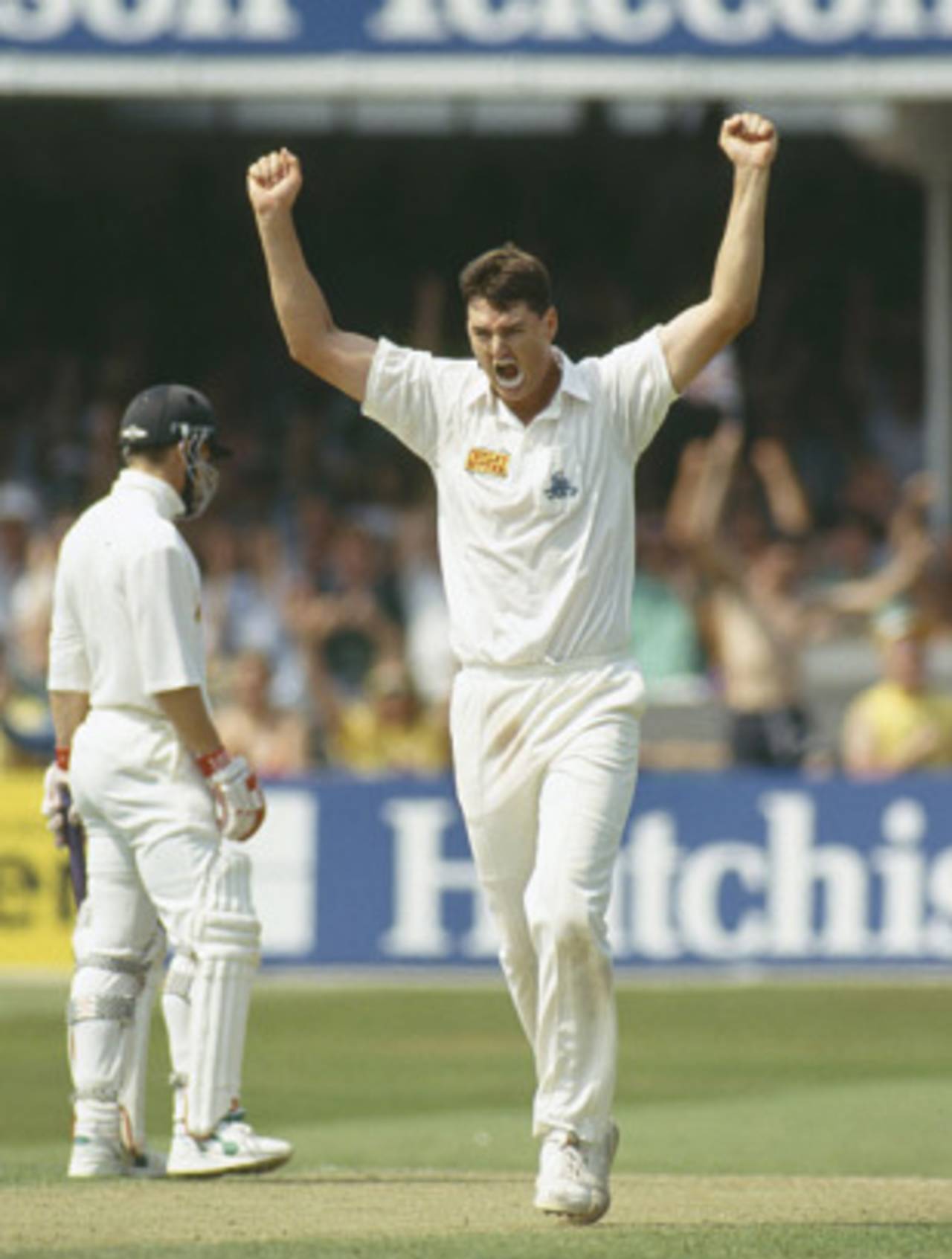For most people hero worship is a form of escapism, a vicarious romp through fields of dreams that are otherwise off limits to mortals. For those who grew up watching Kent in the 1990s that was not the case. The team was full of everymen - no, everyheroes - good, ordinary folk who were extremely good at what they did but, like me and you, did not quite attain greatness.
They were runners-up in seven major competitions between 1992 and 1997. They lost to the period's dominant side, Warwickshire, in all manner of ways: traumatic chokes, numbing thrashings, even a bowl-out. If most heroes come straight from high-definition blockbusters, Kent's were more like those from a grainy indie movie: understated, human, and proof that you do not always get the girl, the job or a winners' medal in the AXA Equity and Law Sunday League.
Kent had a flurry of players who nearly cracked the big time. Mark Benson, Mark Ealham, Alan Igglesden, Dean Headley and Min Patel all played for England, yet managed only 29 Test caps between them. Then there was
Martin John McCague, a man who taught an impressionable teenager the poignant beauty of man love and a one-way bromance that never dared speak its name; a bulldozer of a fast bowler whose force was as irresistible as any other in county cricket for most of the 1990s. His first-class average of 27.17 is better than those of peers such as Angus Fraser, Phil DeFreitas and Chris Lewis, and only fractionally inferior to those of Darren Gough (27.15) and Andy Caddick (26.59).
Not that it matters. McCague became the biggest joke figure of England's many few-cap wonders of the 1990s - born in Northern Ireland, raised in Australia, capped by England and, it felt, disowned by all three. He was maligned to a degree I could never fathom. When people thought of McCague, they thought of his Australian upbringing and of pies, both bowled and eaten.
Everything he did seemed to bring a scandalous degree of opprobrium. He was not born and bred in England? How unprecedented. He was picked for the 1994-95 Ashes ahead of an English institution, Fraser, a treason apparently on a par with flicking a V-sign at Her Majesty. What was he supposed to do? Refuse? He was spanked all round Australia? That really puts him in a minority among modern England bowlers. It all made me want to protect this poor, vulnerable, 6ft 4in, 17-stone lamb. In time I loved him because nobody else loved him.
But there were other reasons to love him. For one, he trolleyed booze like a normal bloke, once putting away 72 pints of Guinness in 48 hours on team-mate Steve Marsh's stag weekend. "Every one was counted," he said, proudly wincing. "We came with 21 blokes and left with 18." Maybe he drank them.
I loved the fact that, when England flew over for the 1994-95 Ashes, McCague apparently took the "David Boon Challenge" and was well ahead of the required rate when, around Singapore, the England management got wind of the jape and turned into fun police.
Everything he did seemed to bring a scandalous degree of opprobrium. He was not born and bred in England? How unprecedented. He was spanked all round Australia? That really puts him in a minority among modern England bowlers.
I loved his almost apologetic run-up, which had all the fluency, elegance and momentum of a man running down an up escalator. I loved the lusty roar at the otherwise genteel St Lawrence Ground every time he detonated someone's stumps. Most of all I loved the fact that, after years of watching Australia's baggy-green mafiosi bullying cowed England bowlers, McCague gave them a fierce working-over on his Test debut,
at Trent Bridge in 1993.
McCague did not knock them down but he got close and you never forget the first time you see the champion's knees wobble. On a raucous Friday evening he gave the hurry-up to Mark Taylor, Boon and Steve Waugh, who had been virtually freezing time as they racked up a series of 600-plus scores.
He was immense then, far better than first-innings figures of 4 for 121 would suggest. On these pages David Frith said: "So fired up was he that his first overs must have ranked with the briskest of Tibby Cotter and Keith Miller." In the Guardian Mike Selvey said he had "bowled as fast as anyone for England in years".
The consensus was that England had found a serious fast-bowling prospect. And fast is the word: for those reared on a boring diet of fast-medium, there was something thrillingly exotic about seeing the letters RF against the name of an English bowler. Local radio was not the only sphere in which FM stood for all that was wrong with England.
McCague was ridiculed in Australia as the "rat who joined the sinking ship", then tossed off that ship after a shocker in his third and final Test,
in Brisbane 18 months later. Most felt McCague bottled it and invented a stomach complaint; he says people needed only "to ask my room-mate Joey Benjamin where I slept the night before: effectively on the toilet, my head on the sink and my arse on the basin".
I could never fathom why nobody believed him or bothered to ask Benjamin. In the end it only made me love him more. So did the uncomplicated language. McCague was just a humble fella who bowled like the wind for a few years. He did not change the world but he made mine more interesting. Keep your geniuses. My kind of hero is a talented, flawed, ordinary bloke with whom you could happily have a beer - or 72.
Rob Smyth is the author of The Spirit of Cricket - What Makes Cricket the Greatest Game on Earth. This article was first published in the June 2010 issue of the Wisden Cricketer. Subscribe here
